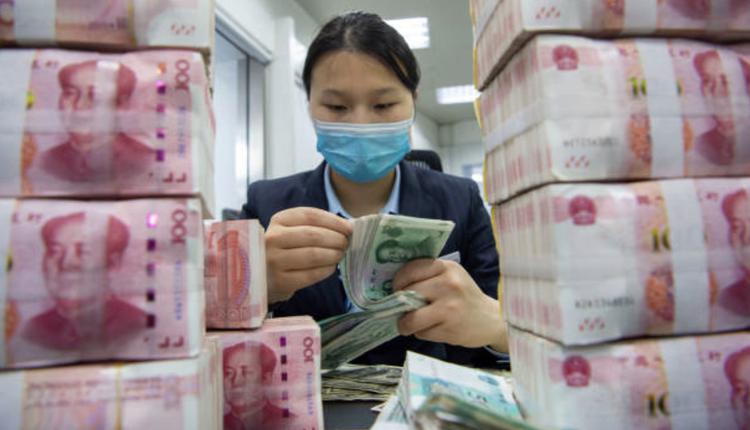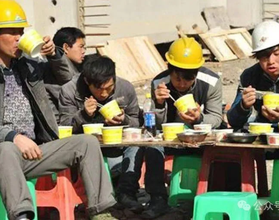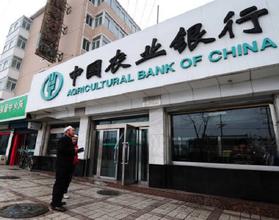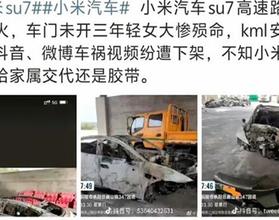据内部人士透露,中国40多年来的惊人发展速度,实际上是依靠巨额债务积累而实现的,相当于在这短短的40年时间里,提前消耗了300年的资金。曾担任全国人大财经委法案室主任长达18年的朱少平,在去年9月的一次公开演讲中表示,中国国内总债务高达650万亿人民币,其中政府债务达到319万亿人民币,企业债务193万亿,居民债务138万亿人民币。
观察美国的数据,该国历经200多年的发展,联邦政府加地方政府的总负债未超过34万亿美元,折合人民币约为200万亿。然而,中国政府仅在改革开放的40年间,中央和地方政府负债已高达319万亿。看起来,中国40年的负债规模已超过美国200年负债的总和。
如今我们可以清楚地认识到,中国城市中崭新的基础设施、宏伟的新机场、各大城市的摩天大楼和现代化基础设施,皆是通过中国各级政府的借债实现的。这些建设项目要么由地方政府借款实施,要么由当地企业承担债务进行建设。
根据全国人大的数据,中国中央政府和地方政府的债务总额达到319万亿人民币。债务与GDP的比例高达1:2.798,远超美国的1.1875。
根据公布的数据,2022年,至少有70%的省级政府,最多可能达到90%以上的省级政府,在把当年所有可借款的额度,都借出来之后,还是无法支付已经负债的债务利息,更不用说本金了。面对这一局面,中国央行开始印钞,各金融机构则通过加杠杆向地方政府及其附属机构贷款。不过,这样的操作带来的后果,是相当的恐怖。
今天我们主要来看中国地方政府的债务,这些政府有两大基本的财源,一个是当地的卖地收入,一个是中央财政的转移支付。那么地方政府是怎么用这两大块来借钱的呢?
2016年中央政府规定,不允许地方政府用没有经过一级开发的土地,去银行进行抵押贷款了。但是之前,地方政府大量进行这种操作,中央政府也是睁一只眼闭一只眼,原因就是因为地方的税都上交了中央,为了让地方政府有资金进行投资建设,对这种踩红线的事情,就没有严加管理。根据知乎上的计算,这类贷款累积到现在,数量已经达到了100万亿元。
那么地方政府用土地抵押借来的贷款和利息,最后都是怎么还上的呢?这就要谈到依靠卖地的收入了。地方政府拥有土地,土地招拍挂转让,得来的收益,进了地方政府的账户,可以被用来还银行贷款的本金和利息。因此说,土地能不能卖出好价钱,是地方政府能不能还上银行贷款本息的关键。
问题是最近几年房地产市场需求下降,地方政府的土地招拍挂出现了底价成交和大量流拍的现象。按照中国土地招拍挂的规则,一旦出现流拍,就要降价拍卖。土地几次降价后,也会导致原来抵押土地的评估值跟着下降了。这就影响到了,地方政府当初和银行签的贷款合同。银行发现地方土地估值下降,就会要求地方政府提供更多的抵押物,如果地方政府不能满足到银行的要求,就会被要求提前归还本金和利息。这很让地方政府很头疼。
怎么办呢?市场上没有开发商愿意买地,那就让政府全资拥有的城投公司上阵吧,让城投公司或者当地的国有开发商,参与土地的竞拍,保住土地的价格。这样地方政府有了买地的收入,归还欠金融机构本金和利息就没问题。
What is the solution? When no private developers are willing to purchase land, local governments can rely on their wholly-owned urban investment companies (or local state-owned developers) to participate in land auctions and maintain land prices. In this manner, local governments can secure income from land sales, enabling them to repay the principal and interest owed to financial institutions.
但是城投公司也缺钱,为了能买地方政府的地,就发行了城投债借钱。地方政府发行的公债,也可以注入城投,来购买地皮,而且地方政府的债券息低到4%。
However, urban investment companies may also lack funds. To acquire land from local governments, they issue urban investment bonds to borrow money. Local government bonds can also be used to facilitate land purchases by urban investment companies, with bond yields as low as 4%.
城投公司买了地之后,如果要开发新房,那么新房的价格就不能下跌,这样才能保证城投公司能收回建设成本,还能有余力去归还城投债,还能有余力购买政府的其余的土地。为了达到这个目的,各地政府纷纷出台了限制新房价格下跌的政策,此外中央财政也要求金融机构,向地方政府提供贷款,购买地方政府关联公司建设的新房,保证城投公司能还上城投债的利息,接下来还能购买地方政府的土地,地方政府也能还上欠金融机构的本金和利息,这个运转的链条就不会断了。
Once urban investment companies purchase land, they cannot allow the prices of new homes to decrease. This is crucial for the companies to recover their construction costs, have enough resources to repay urban investment bonds, and be able to purchase additional land from the government. To achieve this, local governments have implemented policies to limit the decline in new home prices. Additionally, the central government has instructed financial institutions to provide loans to local governments for the acquisition of new homes built by government-affiliated companies. This ensures that urban investment firms can repay the interest on their bonds, allowing them to continue purchasing land from local governments. This, in turn, enables local governments to repay the principal and interest owed to financial institutions, thereby maintaining the continuity of this chain of transactions.
如果这些买下地方政府地皮的城投公司,不开发这块地,2年之后,地皮就会被政府收回。政府再推出新地皮,城投公司就继续买地,也是通过发城投债,获得买地的资金。这样下去,城投公司每次都少了一块地皮的钱,地方政府债和城投债越积越多。
If urban investment companies fail to develop the land they purchase from local governments, the government will reclaim it after two years. The government will then release new land, and urban investment companies will continue to buy land by issuing urban investment bonds to obtain funds for land purchases. In this way, urban investment companies lose money on each piece of land, and local government debt and urban investment debt accumulate over time.
在中国的知乎网站上,人们从不同的角度对中国城投公司的负债规模进行了估算,最低的数值是60万亿元。如果把城投公司发行的商票,把没有公示的担保和很多隐形的东西都计算上,仅仅中国各地区的城投公司,负债就可能超过100万亿。
On China’s Zhihu website, people have estimated the debt scale of Chinese urban investment companies from different perspectives, with the lowest figure being ¥60 trillion. If commercial paper issued by urban investment companies, unpublicized guarantees, and many other hidden items are taken into account, the debt of urban investment companies in various regions of China may exceed ¥100 trillion.
地方政府另外一部分收入来源,是中央财政的转移收入,大部分也是中央政府通过赤字或发债获得的。赤字就是央行把钱印出来,借给中央政府的钱,理论上这笔钱中央政府是要还给央行的。发债就是中央政府发行国债,比如特殊国债,专项国债,目的是向社会上的金融机构和社会大众借款。中央政府拿到了借来的钱,转移支付给地方政府。因此地方政府的这部分收入也是借来的。
Local governments in China also receive transfer payments from the central government, which are mostly obtained through deficits or issuing bonds. Deficits refer to the money printed by the central bank and loaned to the central government, which in theory should be repaid to the central bank. Issuing bonds means that the central government issues treasury bonds, such as special national bonds and special-purpose national bonds, to borrow money from financial institutions and the public. The central government then transfers the borrowed money to local governments. Thus, this portion of local government income is also borrowed.
现在中央银行开动了印钞机,但是也不敢印太多,人民币别看不能自由兑换,它也是国际货币体系的一员,印多少钱必须通告,哪能随便印钱?但是中国的金融机构,可以对负债施加杠杆。
The central bank is currently increasing the money supply, but it must be careful not to overdo it. Although the Renminbi (RMB) is not freely convertible, it is still part of the international monetary system, and the amount of money printed must be disclosed; it cannot be printed casually. However, Chinese financial institutions have the ability to leverage off their debts.
中国负债的杠杆放大相当可怕,举个例子,某城投公司A,用自己下面的土地经过评估做了抵押,向B银行借了流动现金,这份抵押土地的已经出现的借条,可能又会在银行的主导下,由A城投公司和B金融机构共同,向C投资信托公司发行信托基金,然后C投资信托公司发行的信托基金,又会被当作发起人资金,再发行股权私募基金D。
China’s use of debt leverage is quite concerning. China’s debt market leverage issue is quite concerning. As an example, consider Urban Investment Company A, which uses its own land as collateral after an evaluation and borrows liquid cash from Bank B. The debt generated from the collateralized land may then, under the guidance of Bank B, be jointly used by Urban Investment Company A and Financial Institution B to issue a trust fund to Investment Trust Company C. Subsequently, the trust fund issued by Investment Trust Company C could be treated as the initiator’s capital and be used to issue a private equity fund, Fund D.
城投公司仅仅是对这个土地进行了评估,然后进行抵押,但是却从这么多的来源,获得了资金,这个就叫杠杆。
In this situation, Company A merely assessed and used the land as collateral, but still managed to obtain funds from various sources. This process is known as leverage.
通过杠杆放大借来的资金,投到社会上,可能会被用来购买产品,购买服务,雇佣人员,等于是活跃了社会的经济,产生了繁荣的景象。不过从另一方面说,如果城投公司A,不能从活跃社会经济的最终收益中,拿到本金和利息的收益,就会导致借给他钱的B银行存款人,C投资信托公司的投资人,D 股权私募基金的投资人,他们的资金就会遭受重大的损失。
By leveraging borrowed funds and investing them into society, it is possible that these funds are used to purchase products, services, and hire personnel, ultimately stimulating the economy and creating a prosperous environment. However, on the other hand, if Urban Investment Company A is unable to generate sufficient returns from the economic activities to cover the principal and interest payments, it can result in significant losses for various parties involved, such as depositors of Bank B, investors in Investment Trust Company C, and investors in private equity fund D.
前几年习近平还没有完全独裁的时候,中国高层也看到了主动借债的疯狂发展模式带来的恐怖结果,当时国务院最大限度的推行降低风险,降杠杆。采取的一个重要措施就是利用股市解决这个问题,把所有可能产生杠杆风险的公司,地方政府涉及到的企业,金融机构涉及到企业和个人,都通过股市解决。
In the years before Xi Jinping fully assumed his autocratic role, the Chinese elite had already recognized the alarming consequences of their nation’s frenzied, borrowing-driven growth model. In response, the State Council vigorously promoted risk reduction and deleveraging to the greatest extent possible. A crucial measure in this effort was utilizing the stock market to address the problem, aiming to resolve potential leverage risks for all companies, local government-related enterprises, and individuals involved with financial institutions.
中国股市当时有大量的IPO直接融资,帮助企业把把贷款还了,把发的债还了,负债的杠杆降了下来,很多没有暴露在公众视野中的隐形杠杆,都降了下来,这也是中国股市一直跌的这么厉害的原因,发展这么多年的股市,从最高的6000多点到现在的3000点,全世界都没有过的奇景,就是因为直接融资都去还债,降杠杆了。
At that time, the Chinese stock market had a large number of IPOs for direct financing, which helped companies repay their loans and debts, including hidden debts, thus reducing their leverage. This is one of the reasons why the Chinese stock market has experienced such a significant decline over the years, going from its peak of over 6,000 points to around 3,000 points currently. This unusual phenomenon has not been seen elsewhere in the world and is mainly due to direct financing being used to repay debts and reduce leverage.
但是相对于已经650多万亿的庞大的负债市场,这些降杠杆的方式和手段现在能实施的,算是杯水车薪。
However, compared to the massive debt market of over 65 trillion RMB, the current methods and means of reducing leverage are akin to a drop in the bucket.
面临需要还得债越来越多,中共就拼命的放贷,把全社会所有能够用的资源和信誉,都换成钱还债。而且很多城投公司借债的时候,让地方政府把能抵押的,能担保的东西都抵押出去了,地方政府不仅是地下管道,连大楼都已经全抵押贷款出去,很多中国的地方政府实际上就是个空架子。对此,银保监会去年年底发布了文件,防止地方政府把整个城市的水管电网等所有基础设施都抵押掉。只是已经迟了一步,从公开的资料查询,中国地方政府已经把所有能抵押的东西几乎全都抵押了。
Faced with an ever-growing debt repayment burden, the CCP has increased lending and converted all available resources and creditworthiness into funds for debt repayment. In many cases, local governments were forced to mortgage and guarantee everything they could when borrowing through urban investment corporations. Not only were underground pipelines mortgaged, but entire buildings were also put up as collateral, leaving many local governments in China as mere empty shells. In response, the China Banking and Insurance Regulatory Commission issued a document late last year to prevent local governments from mortgaging all of their urban infrastructure. However, it was a step too late, as public records show that Chinese local governments have already mortgaged almost everything they could.
中国以前特别害怕的内保外贷的借贷方式都开始用上了,内保外贷借贷方式就是允许房地产境内的担保在境外进行融资,这比银行贷款恐怖的多,内保外贷是曾经 让中国的金融体系吃过大亏,现在竟然能开放,就能想象到现在借贷的疯狂。
China, which was once wary of outbound guarantees, has now started to embrace them. This approach enables domestic real estate guarantees to secure financing from abroad, a strategy that carries far more risks than traditional bank loans. In the past, outbound guarantees had inflicted significant losses on China’s financial system. The recent resurgence of this practice highlights the current frenzy of borrowing, raising concerns about its long-term consequences.
这样做的结果从短期看,会缓解一大部分经济发展的风险压力,部分紧急用钱的地方确实有资金来了,确实也能把杠杆降了。但是从长期看,中国改开40年,都看不到一个真正的任何的,具备可持续发展的经济模型,让这个社会的经济持续运转下去,除了外贸出口,任何能给中国经济发展提供动能的,真正的有实力的支柱型产业,统统都没有。没有美国的高技术产业,没有英国欧洲的传统商业
。In the short term, this strategy serves as a balm to assuage a considerable portion of the risk pressures entwined with economic development, delivering much-needed financial relief to certain regions and adeptly curbing leverage. However, in the long run, after four decades of China’s relentless pursuit of reform and opening up, it still lacks a sustainable economic paradigm capable of carrying the nation’s economic vitality. Apart from the lifeblood of foreign trade exports, China’s economic tapestry is devoid of any formidable pillar industries that could galvanize its developmental momentum. The nation lags behind, overshadowed by the United States’ high-tech prowess and the time-honored traditional commerce of the United Kingdom and Europe.
这个国家40年的发展都是在透支未来,各地方政府把所有能够卖的土地都卖掉了,不能卖的土地也抵押掉了,所有能够用来抵押担保借钱的,都抵押了,把所有借的钱也全借了,所有借钱的方式都用尽了。这些资金,流向了中国政府统治的社会,造成了虚假繁荣,中国政府给他起了个好名字,叫通过投资拉动经济发展。但是这里面实际上只有投资,没有拉动经济,拉动的是所谓的繁荣,并没有形成任何能保证14亿人口生存发展需要的相关产业。
China’s development over the past 40 years has been built on borrowing from the future. Local governments have sold off all available land and mortgaged what they could and what they couldn’t! Now the borrowed money has been exhausted, with all means of borrowing depleted. These funds have poured into the Chinese economy, creating a false sense of prosperity. The government has named it “stimulating economic development through investment,” but in reality, it has only created investments without real economic stimulus or industries capable of meeting the needs of 1.4 billion people.
把西方能够拉动经济发展的产业,拿过来对比对比,就会发现中国没有形成像样的产业。中国软件行业行吗?不行,汽车行业整体行吗?不行,民航产业整体行吗?不行,互联网产业整体行吗?不行。人工智能产业行吗?不行。精密机床产业行吗?不行,遍布全世界的金融领域,中国发展的行不行,也不行。
China’s industries do not compare with those of the West that drive economic development. It has yet to form any reputable and mature industries, from software to automotive, civil aviation, internet, artificial intelligence, or precision machine tool. Even in the global financial sector, China’s development is not up to par.
没有能还债的产业,中国各地方政府就必须想办法延期债务,因此银行系统的资深人士,已经上任了若干城市的副市长主管金融。这些新的副市长,在银行业有人脉关系,有资源关系,将会尽可能地,对地方政府持有的负债进行展期和重组。然而,这也只是把还钱的日期往后推了。
Without industries capable of repaying debts, local governments in China must find ways to postpone them. In response, seasoned banking professionals have taken up positions as deputy mayors in charge of finance in several cities. These new deputy mayors, with their banking industry connections and resources, will do their best to extend and restructure local government debt. However, this merely postpones the repayment date.
假设地方政府真的还不了债了,中国现在的金融机构也是没有任何办法的。持有地方政府债务,城投债和隐形债务的,往往是地方的银行,证券,保险,信托公司的小额贷款公司,面对这些债务在未来可能的违约,央企和国资背景的大量机构,基于风险评估,正在疯狂抛售这些金融机构的股权。这些地方的小型金融机构,未来的厄运几乎是没有挽回余地,如果倒闭和重组,最终会有大量的储户,和投资人的钱拿不回来。
If local governments are unable to repay their debts, China’s current financial institutions have no solution available. Local banks, securities firms, insurance companies, and small loan companies often hold local government debt, urban investment bonds, and hidden debts. Many institutions with state-owned enterprise backgrounds are selling their equity in these financial institutions due to risk assessments. The future of these local small financial institutions is almost irreversible, and if they collapse or restructure, a large number of depositors and investors may not be able to recover their money.
说实在的,别说中国共产党这种超级无能的执政团队,就是整个地球上其他所有现存的统治团队,面对中国用40多年挖掘起来大坑,都不可能提出任何更好的解决方案。2023年习近平如果没有可能让中国进入战时经济,实施全面的军事管理,那他就只能通过疯狂的印钱,来做破产前的最后挣扎。
It is suggested that there are no real solutions to the social and economic crises caused by policies implemented by the Chinese leadership over the past four decades. Some analysts believe that no leader or party of other countries would have any better ideas in addressing these problems. If certain measures, such as a wartime economy or military management, are not implemented by Xi Jinping by 2023, it is predicted that resorting to excessive money printing may be the only option to avoid the great China collapse.
本文由看新闻网原创、编译或首发,并保留版权。转载必须保持文本完整,声明文章出自看新闻网并包含原文标题及链接。








